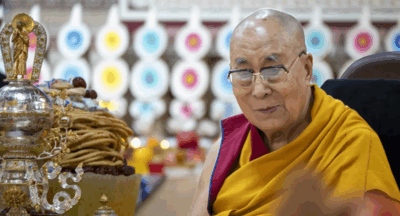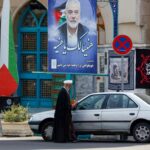More than a month after the pause of India’s Operation Sindoor on May 10 at 5 PM, time has come to state it in candid terms that our Prime Minister’s doctrine of New Normal in respect of relations with Pakistan has failed to convince the major global powers. While strongly defending India in its fight against the terror inspired by Islamabad, the major countries are in favour of bilateral talks to discuss the thorny issues including terror which led to the four day limited war.
The seven all party parliamentary delegations which visited more than 30 countries are back after their interactions with the government leaders, parliament members and Indian diaspora. Officially, they might have expressed their opinion about getting big response to the Indian stand on fighting terror, but they are equally mum on the response they got on the two important components of new Modi doctrine- no dialogue with Pakistan at this stage and any terrorist action inside India will be followed by Indian attack on Pakistan.
South Block has organized post visit favourable propaganda by the participants, but the hard ground reality is that the Pakistan delegation led by former foreign minister Bilawal Bhutto Zardari made far more impact during their discussions in United Nations headquarters, with U.S. Government officials as also in London at the meeting with the British think tanks as also Parliamentarians.
Indian delegation led by Shashi Tharoor of impeccable diplomatic skills was in Washington and New York at the same time with Bilawal. Tharoor had a meeting with the US vice president J D Vance, but the Congress MP did not give any details of what Vance said about the present situation in India-Pak relations and how to go about it. In fact Vance was the person who spoke to the Indian Prime Minister on May 9 on behalf of President Trump and conveyed the strong message of the U.S. President. Only PM Modi can come out with the details of May 9 talks with Vance to prove that Trump was wrong in claiming that he organized the ‘full and permanent” ceasefire which Narendra Modi termed as pause.
That Shashi Tharoor’s efforts to market the Prime Minister’s doctrine to the Oval office and the White House was a flop is evident from the fact that the commander of the US central command General Michael Kurilla described Pakistan as a phenomenal partner in the counterterrorism world crediting Islamabad with a series of successful operations against ISIS-Khorasan and advocating for continued US engagement with Pakistan and India.
Just imagine the tenor of the speech of this General. This is putting Pakistan above India as a partner in the fight against terror. That is also at a time when India is complaining that Pakistan regime is still backing the terrorists to operate in the Indian soil. General Kurilla also referred to the heavy toll that terrorism has taken on Pakistan itself, noting that in the beginning of 2024, Pakistan had over 1,000 terrorist attacks in the western area, killing about 700 security personnel and civilians apart from 2500 wounded. He also highly praised the present Field Marshall and Chief of Staff Asim Munir who, Indians say, played a key role in attacks on India by Pak backed terrorists.
General Kurilla’s is the latest official version of the Trump administration on the current state of India-Pakistan relations. This US position India has to swallow as the Prime Minister Narendra Modi reshaped his foreign policy after coming to power in 2014 and it took a sharper turn during the first term of Donald Trump. Now, where is the escape route? How is the Indian PM going to deal with his dear friend Donald if they happen to meet in Alberta, Canada during G-7 summit beginning June 15.
It is not a coincidence that the same day General Kurilla was testifying in Washington, Bilawal Bhutto was addressing a meeting of the International Institute for Strategic Studies in London and talked about the same issue about terrorist attacks in Pakistan mentioned by the US general.
“The delegation I lead has been given a mission of peace,” he declared at IISS. “We are advocating to the international community to play their role in encouraging a dialogue, a comprehensive dialogue between India and Pakistan, where Pakistan is ready to talk about all issues.”
He explained, “As it stands today, if there’s a terrorist attack anywhere in India, proof or no proof, we go to war. That is the de facto position of the new abnormal that India is trying to impose on the region. The equivalence would mean that if there’s a terrorist attack in Pakistan, we have to go to war with India. That is a very untenable situation to be in.”
He went on to say that Narendra Modi’s new doctrine is “lowering the threshold for conflict, a potentially nuclear armed conflict”. He suggested the issues between the two nations can “only be solved by dialogue”.
Pakistan leaders including Bilawal Bhutto can not be trusted on the basis of what they say. But in international politics and diplomacy, dialogue and negotiations are the buzzword for bringing two contending sides to the negotiating table. Narendra Modi himself told President Putin relating to Ukraine war that this was not the time for war. He was speaking the truth.
US secretary Marco Rubio has told the Pakistani side that the U.S. will persuade India to participate in bilateral talks in a neutral venue. He must have told that to Indian external affairs minister Dr. S. Jaishankar also. China and Russian leaders are also suggesting bilateral talks. India should on its own agree to the dialogue with Pakistan rather than be persuaded by others like the U.S. to take part.
India has nothing to lose by agreeing to bilateral talks. The Indian delegation may forcefully demand the actions which it wanted to be taken by the Pak government. India can send that list and proposed actions to the US and other countries. India is better placed militarily and morally. Why then give advantage to Islamabad to project itself as a seeker of dialogue and peace? India can be a darling of global diplomatic community again if it seizes this opportunity. (IPA Service)

 Strikes in Tehran: Israel’s “Rising Lion” Operation Unleashed
Strikes in Tehran: Israel’s “Rising Lion” Operation Unleashed 